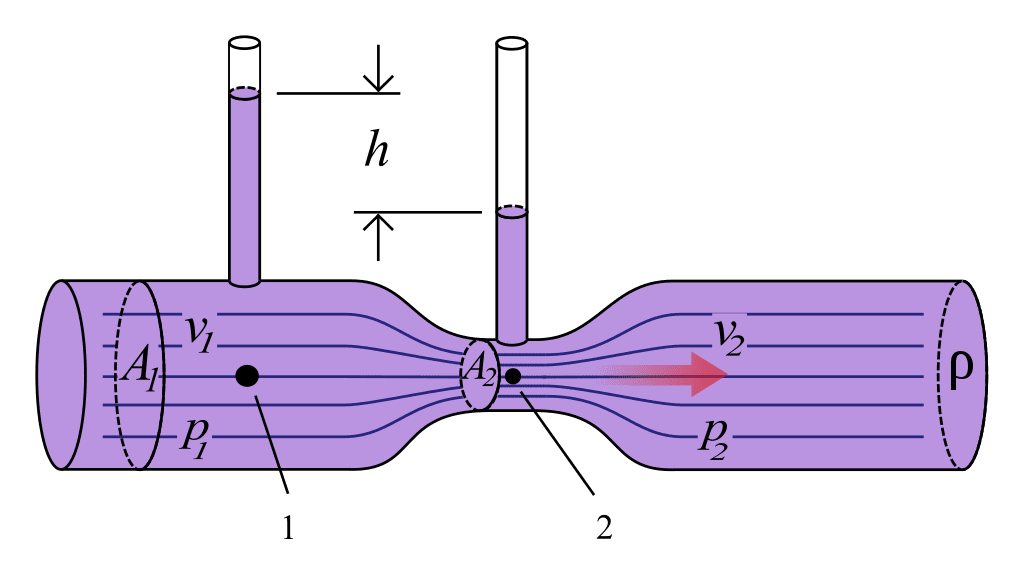If you’ve ever stopped enjoying the weirdly nice-smelling air at the gas station long enough, you may have wondered: how does the pump know when to switch itself off?
The answer is surprisingly complicated. You might be expecting a simple electronic detector that tells the pump handle to shut off when wet, but that is far from the case, as YouTuber and science communicator Steve Mould explained in a recent video.
You don’t spill your gas all over the floor at the station thanks to something called the Venturi effect, which was discovered in 1797 by Italian physicist Giovanni Venturi.
The basic idea of the Venturi effect is that as fluid passes through a constricted area (see pipe diagram below) the speed of the fluid increases, while its static pressure (illustrated using the tubes protruding from the diagram below) decreases.

This principle has been utilized in gas pumps. Inside the nozzle, you may have seen a second, far smaller pipe. As Mould explains, this is acting like tube number 2 above, entering the system at a constriction point.
Since the pressure in the constricted part of the petrol pump is lower than atmospheric pressure, air is sucked up by the smaller nozzle and enters the system (which is having gas pumped through into your car), relieving some of the pressure as it does so.
That is, until a certain point in your refueling process. This is when the smaller nozzle hits the gasoline filling up your tank. The density of the gas (a liquid: side note, but America we really need to talk about how confusing it is to name a liquid “gas”) makes it more difficult to draw it through.
The clever part (as illustrated with props in the video) is that the tube splits in two near the connection to the constriction in the pipe. When the liquid blocks the small tube at the end of the nozzle, the other split pipe’s suction increases as a reaction. Though there’s more to it involving ball bearings and a clever lever situation in the handle, the basics of it is that this increase in suction pressure can be used to pull on a membrane, shutting off the main nozzle and stopping hazardous gasoline spills.
Source Link: How Does The Gas Pump Know When To Turn Off?